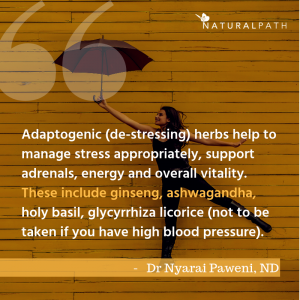 We put a significant amount of attention on our physical health while often neglecting to do the same for our mental health. However, mental/emotional health is just as important as we strive to live healthy and vibrant lives. There are times when we each experience symptoms of depression, sadness, feeling down/low or hopeless and have little to no interest or pleasure in doing things. Taking care of our mental health is critical. Often the stigma around mental health results in avoiding the issue, not openly sharing what we’re going through and not seeking assistance both personally and professionally. We certainly need to raise awareness regarding the importance of tending to our mental health; what we need to do to support healthy and real exchanges that nurture and enhance our mental/emotional well-being.
We put a significant amount of attention on our physical health while often neglecting to do the same for our mental health. However, mental/emotional health is just as important as we strive to live healthy and vibrant lives. There are times when we each experience symptoms of depression, sadness, feeling down/low or hopeless and have little to no interest or pleasure in doing things. Taking care of our mental health is critical. Often the stigma around mental health results in avoiding the issue, not openly sharing what we’re going through and not seeking assistance both personally and professionally. We certainly need to raise awareness regarding the importance of tending to our mental health; what we need to do to support healthy and real exchanges that nurture and enhance our mental/emotional well-being.
Got the blues?
Feeling blue, disappointed, sad, empty or lonely affects many of us at some point in our lives. It all depends on life’s demands and pressures. For those experiencing major depressive disorder, this manifests as depressive moods, making it difficult to carry on with daily activities and functions.
When we’re hurting
When we’re hurting emotionally, mentally and spiritually, often that spills over to physical imbalances. Additionally, being physically unwell may also lead to emotional and mental problems with stress being a common factor. We are body-mind-spirit beings and not functioning at our best emotionally or mentally may lead to a compromised immune system. Our immune defense loses its gusto and we become prone to infections and illnesses.
Diet, stress and sleep
While it’s essential to seek professional help when depressive or mental health concerns last longer than usual and disrupt your daily life, it is also important to explore if diet, sleep and stress have anything to do with your poor state of mind. Mood disorders have a direct link to increased sugar intake. A study conducted by the University College London, highlighted that consumption of 67 grams of sugar per day may likely lead to mental health conditions than those who had less than 39.5 grams daily. High sugar intake causes inflammation which is linked to depression. Additionally, high sugar consumption may reduce a protein (BDNF) that helps the brain cells to grow and develop and may cause your insulin response to be altered, causing your hormones to drop.
Lift Your Mood Naturally – Here’s How:
- Consume a well-balanced diet that is filled with fruits, vegetables and protein and reduce simple sugar and fast food consumption. By doing this, you are helping to ensure adequate nutrient intake for the body and brain to function optimally.
- Drink more water, swap out any soft-drinks for water and always stay hydrated.
- Omega-3 Fatty Acids found in fish oils, nuts, seeds and avocados help calm the brain, provide optimal brain energy, and help balance moods while keeping you full longer so you are not craving sweets or junk food. A lack of essential fatty acids increases risk of mood disorders.
- Probiotics help promote healthy gut bacteria and are not only essential for good digestive and immune health, but also play a major role in mental health. Probiotics can be found in supplementation, fermented foods such as Kombucha, Kefir, sauerkraut, yogurt (with no added sugar), and some cheeses.
- Include adaptogenic (de-stressing) herbs to help to manage stress appropriately, support adrenals, energy and overall vitality. These include ginseng, ashwagandha, holy basil, glycyrrhiza licorice (not to be taken if you have high blood pressure).
- Take magnesium, most people have low levels of magnesium which often leads to apathy, depression, anxiety and/or insomnia.
- Homeopathy has an amazing way of balancing mental, emotional and physical ailments. Arsenicum album is great for symptoms of anxiety with depression. Ignatia may help when depression follows bereavement, loss, or a shock. Natrum muriaticum may ease symptoms of stress, such as those typified by mild depression and sepia – when energy is low and drained and there are feelings of unworthiness.
- Bach Flowers have a gentle way of rebalancing the mental/emotional state. Rescue remedy is great for fears and anxiety. Elm may be used for temporary feelings of inadequacy or feeling overwhelmed. Gentian is for feelings of despondence and dejection. Olive is for those feeling drained or fatigued. White Chestnut addresses worry.
- Exercise regularly, this can prevent depressive moods and also prevent you from relapsing to low level mental states. It also promotes all kinds of changes in the brain, including neural growth, and reduction of inflammation.
- Get sufficient sleep ensuring you are getting 7-8 hours a night to ward off any blues and strengthen mental clarity.
- Get out in nature to get some fresh air and sunshine. It will help clear your mind and reground you.
- EFT/Tapping (Emotional Freedom Technique), also called psychological acupressure is a technique to shift moods/thought patterns and create balance in energy systems by focusing on meridian points. This can be done alone (find examples on YouTube) or with assistance from an EFT practitioner.
Natural remedies can be effective, however, be sure to get the support of a health care practitioner, as getting the care you need is most important for you to be the BEST and live YOUR BEST life.
Resources:
- British Homeopathic, https://www.britishhomeopathic.org/charity/how-we-can-help/articles/conditions/a/beating-the-blues/, Retrieved 1/10/19
- High sugar intake linked with poorer long-term mental health, University College of London, https://www.ucl.ac.uk/news/2017/jul/high-sugar-intake-linked-poorer-long-term-mental-health, Retrieved 1/2/19
- Natural Medicine Journal, Rena Freedenberg, ND, Natural Depression Remedies,December 2009 Vol. 1 Issue 12
- Healthline, How EFT/Tapping Works, https://www.healthline.com/health/eft-tapping,
- https://www.healthline.com/health/eft-tapping Retrieved 1/10/19
- Logan AC. Omega-3 fatty acids and major depression: a primer for the mental health professional. Lipids Health Dis. 2004;3:25. Published 2004 Nov 9. doi:10.1186/1476-511X-3-25
- Nature, LLC, Bach Flowers and anixtey, http://www.bachflower.com/what-is-anxiety-what-causes-anxiety/, Retrieved 1/10/19
Photo by freestocks.org on Unsplash
 Dr Nyarai Paweni, ND is a graduate of NUHS, Lombard, IL and Member of ILNAP, TMPC & ZANPH of Zimbabwe. Author, Speaker, Mentor, Founder & Owner of Sage ReStorative Health, holistic and wellness center. w:Sagehw.com e:[email protected], Facebook.com/sagerhealth. Twitter: @DrNyarai, IG:Sagerhealth
Dr Nyarai Paweni, ND is a graduate of NUHS, Lombard, IL and Member of ILNAP, TMPC & ZANPH of Zimbabwe. Author, Speaker, Mentor, Founder & Owner of Sage ReStorative Health, holistic and wellness center. w:Sagehw.com e:[email protected], Facebook.com/sagerhealth. Twitter: @DrNyarai, IG:Sagerhealth

















There are a lot of herbs out there that are good for you aswell, like lavender, camomile, melissa, etc. Very helpful if u need to calm down.